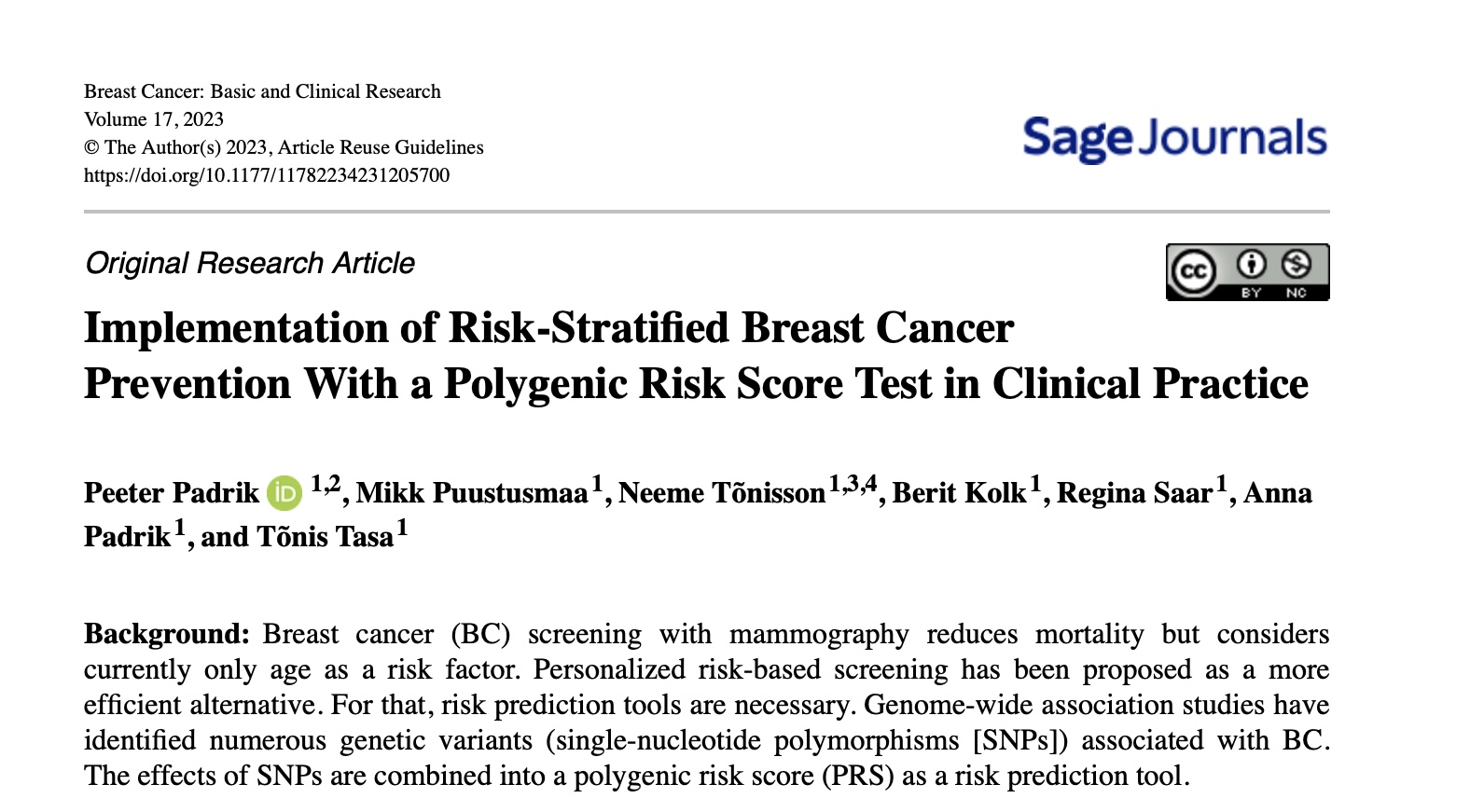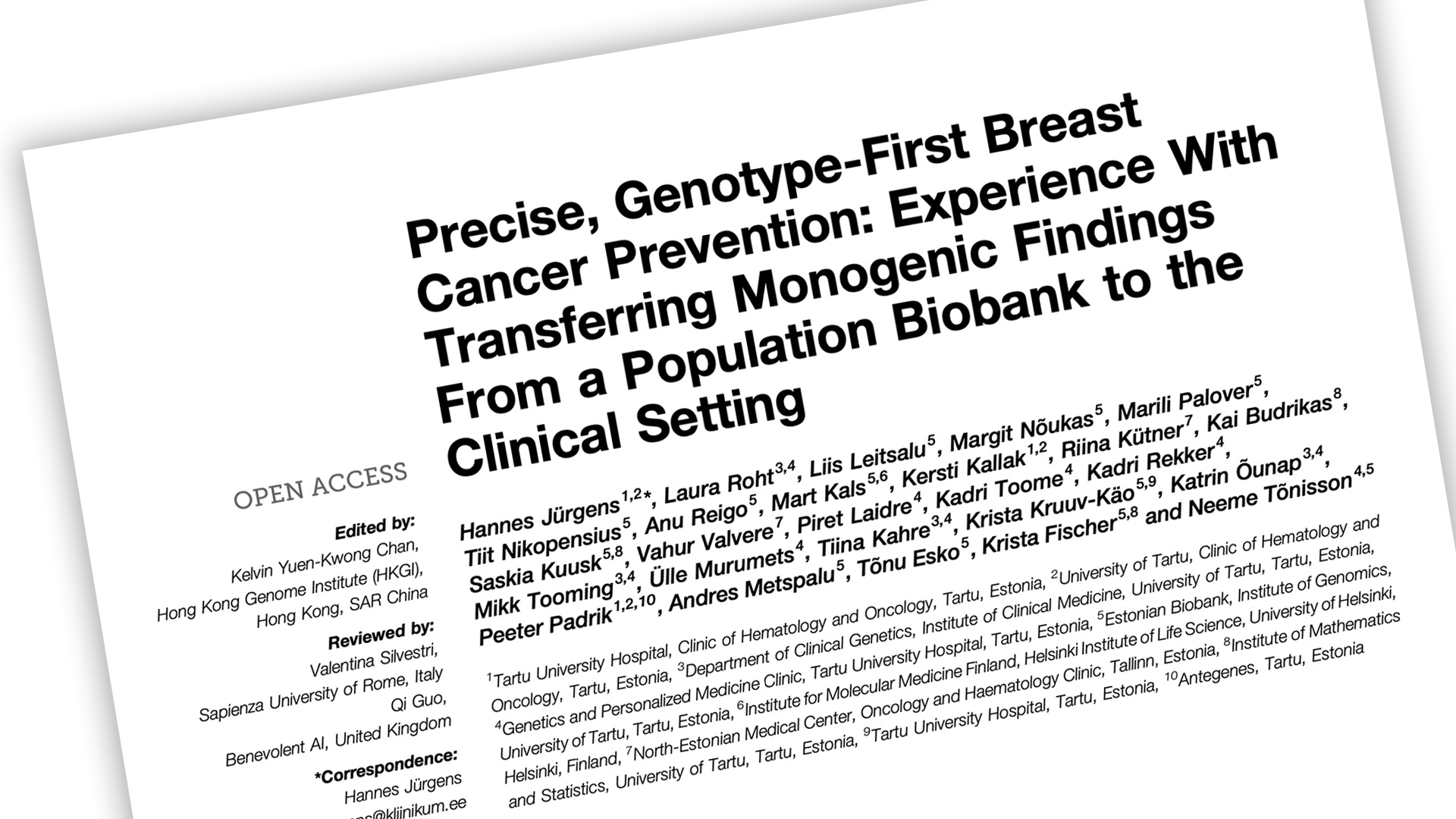Our recently published peer-reviewed article, “Implementation of Risk-Stratified Breast Cancer Prevention With a Polygenic Risk Score Test in Clinical Practice,” in the journal “Breast Cancer: Basic and Clinical Research,” is one of the first scientific papers describing the introduction of a polygenic risk score into routine clinical practice. In the article, we detail the development and validation of a breast cancer polygenic risk score genetic test, the creation of its clinical usage model and test report, as well as initial results from its application in Estonian healthcare for breast cancer prevention based on individual genetic risks.
Implementation of Risk-Stratified Breast Cancer Prevention With a Polygenic Risk Score Test in Clinical Practice
Breast cancer (BC) screening with mammography reduces mortality but considers currently only age as a risk factor. Personalized risk-based screening has been proposed as a more efficient alternative. For that, risk prediction tools are necessary. Genome-wide association studies have identified numerous genetic variants (single-nucleotide polymorphisms [SNPs]) associated with BC. The effects of SNPs are combined into a polygenic risk score (PRS) as a risk prediction tool. We aimed to develop a clinical-grade PRS test suitable for BC risk-stratified screening with clinical recommendations and implementation in clinical practice.
In the first phase of our study, we gathered previously published PRS models for predicting BC risk from the literature and validated them using the Estonian Biobank and UK Biobank data sets. We selected the best performing model based on prevalent data and independently validated it in both incident data sets. We then conducted absolute risk simulations, developed risk-based recommendations, and implemented the PRS test in clinical practice.
In the second phase, we carried out a retrospective analysis of the PRS test’s performance results in clinical practice. The best performing PRS included 2803 SNPs. The C-index of the Cox regression model associating BC status with PRS was 0.656 (SE = 0.05) with a hazard ratio of 1.66. The PRS can stratify individuals with more than a 3-fold risk increase. A total of 2637 BC PRS tests have been performed for women between the ages 30 and 83. Results in clinical use overlap well with expected PRS performance with 5.7% of women with more than 2-fold and 1.4% with more than 3-fold higher risk than the population average.
The PRS test separates different BC risk levels and is feasible to implement in clinical practice.
Read more here: https://journals.sagepub.com/doi/10.1177/11782234231205700

